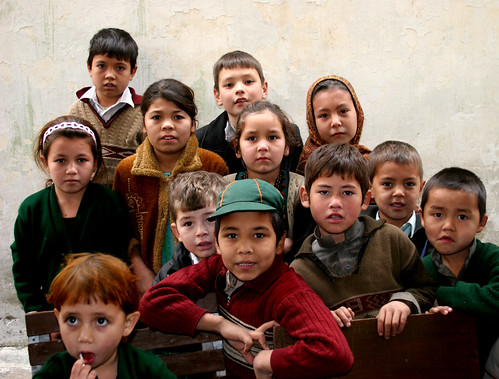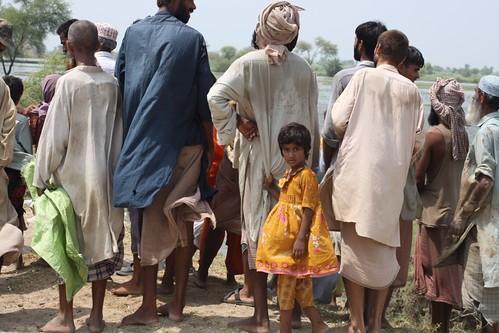Difference between revisions of "Adopting from Pakistan"
(→Hague Convention Information) |
(→Who Can Adopt) |
||
| Line 47: | Line 47: | ||
=Who Can Adopt= | =Who Can Adopt= | ||
| + | Pakistan has no statute that provides for the adoption of Muslim children; thus there is no law setting forth age, residency, or marriage requirements. In general, adoptions are a community matter in Pakistan. People often opt for informal adoptions according to their faith, outside the Family Courts. Such informal adoptions do not meet the criteria set forth in the U.S. law for the issuance of an immigration visa to an [[adopted]] child. Prospective [[Adoptive Parents|adoptive parents]] must comply with U.S. legal requirements in the [[I-600]] process and applicable provisions of the Guardians and Wards Act of 1890 in Pakistan. | ||
==Residency== | ==Residency== | ||
| + | |||
| + | N/A | ||
==Age of Adopting Parents== | ==Age of Adopting Parents== | ||
| + | |||
| + | N/A | ||
==Marriage== | ==Marriage== | ||
| + | |||
| + | N/A | ||
==Income== | ==Income== | ||
| + | |||
| + | N/A | ||
==Other== | ==Other== | ||
| + | N/A | ||
=Who Can Be Adopted= | =Who Can Be Adopted= | ||
Revision as of 04:01, 8 April 2014
Contents
Hague Convention Information
Pakistan is not party to the Hague Convention on Protection of Children and Co-operation in Respect of Intercountry Adoption (Hague Adoption Convention). Intercountry adoptions of children from non-Hague countries are processed in accordance with 8 Code of Federal Regulations, Section 204.3 as it relates to orphans as defined under the Immigration and Nationality Act, Section 101(b)(1)(F).
Adopting a child in Pakistan can be a long, difficult, and legally-complex process. The Guardians and Wards Act of 1890 governs the rights and interests of minors in Pakistan. Pakistani law and Islamic Shari’a law, upon which Pakistan family law is largely based, does not allow for adoptions of Pakistani children in Pakistan. According to Pakistan's laws, prospective adoptive parents who are non-Muslim may not be appointed guardians of Muslim children, and non-Christians may not be appointed guardians of Christian children. Children abandoned at an Islamic orphanage are deemed Muslim unless there is any evidence to prove otherwise.
U. S. citizens considering adoption of a non-Muslim Pakistani child must obtain guardianship for emigration and adoption in the United States from the Family Court that has jurisdiction over the prospective adoptive child’s place of residence. In order for the child to be eligible to receive an immigrant visa, the guardianship order must imply permission for the child to emigrate and be adopted in another country. Prospective adoptive parents should refer to our information sheet on Adoption of Children from Countries in which Islamic Shari'a Law is observed for more information.
Prospective adoptive parents should exercise caution and are advised to fully research any adoption agency or facilitator they plan to use. Prospective adoptive parents may be targets for unscrupulous lawyers or adoption agencies that may not be able to deliver on their promises. Prospective adoptive parents are strongly encouraged to contact the U.S. Embassy Islamabad’s consular section by email at AdoptionsPakistan@state.gov, or the U.S. Citizenship and Immigration Services’ (USCIS) National Benefits Center at NBC.Adoptions@dhs.gov, before applying for guardianship of a child to ensure that proper procedures have been followed.
U.S. IMMIGRATION REQUIREMENTS FOR INTERCOUNTRY ADOPTIONS
To bring a child you have obtained guardianship of to the United States from Pakistan, you must meet eligibility and suitability requirements. The U.S. Department of Homeland Security, U.S. Citizenship and Immigration Services (USCIS) determines who can adopt under U.S. immigration law.
Additionally, a child must meet the definition of orphan under U.S. immigration law in order to be eligible to immigrate to the United States on an IR-3 or IR-4 immigrant visa.
Who Can Adopt
Pakistan has no statute that provides for the adoption of Muslim children; thus there is no law setting forth age, residency, or marriage requirements. In general, adoptions are a community matter in Pakistan. People often opt for informal adoptions according to their faith, outside the Family Courts. Such informal adoptions do not meet the criteria set forth in the U.S. law for the issuance of an immigration visa to an adopted child. Prospective adoptive parents must comply with U.S. legal requirements in the I-600 process and applicable provisions of the Guardians and Wards Act of 1890 in Pakistan.
Residency
N/A
Age of Adopting Parents
N/A
Marriage
N/A
Income
N/A
Other
N/A
Who Can Be Adopted
How to Adopt
Adoption Authority
The Process
Traveling Abroad
Applying for Your U.S. Passport
A valid U.S. passport is required to enter and leave Pakistan. Only the U.S. Department of State has the authority to grant, issue, or verify U.S. passports. Getting or renewing a passport is easy. The Passport Application Wizard will help you determine which passport form you need, help you to complete the form online, estimate your payment, and generate the form for you to print-all in one place.
Obtaining Your Visa
In addition to a U.S. passport, you also need to obtain a visa. A visa is an official document issued by a foreign country that formally allows you to visit. Where required, visas are attached to your passport and allow you to enter a foreign nation. To find information about obtaining a visa for Pakistan, see the Department of State's Country Specific Information.
Staying Safe on Your Trip
Before you travel, it's always a good practice to investigate the local conditions, laws, political landscape, and culture of the country. The State Department is a good place to start. The Department of State provides Country Specific Information for every country of the world about various issues, including the health conditions, crime, unusual currency or entry requirements, and any areas of instability.
Staying in Touch on Your Trip
When traveling during the adoption process, we encourage you to register your trip with the Department of State. Travel registration makes it possible to contact you if necessary. Whether there's a family emergency in the United States, or a crisis in Pakistan, registration assists the U.S. Embassy or Consulate in reaching you. Registration is free and can be done online.
After Adoption
What resources are available to assist families after the adoption?
Many adoptive parents find it important to find support after the adoption. Take advantage of all the resources available to your family -- whether it's another adoptive family, a support group, an advocacy organization, or your religious or community services.
Here are some good places to start your support group search:
Child Welfare Information Gateway
North American Council on Adoptable Children
Adoption Services Support Group for Adopting Persons
SOURCE
Intercountry Adoption, Bureau of Consular Affairs. U.S. Department of State Country Information










